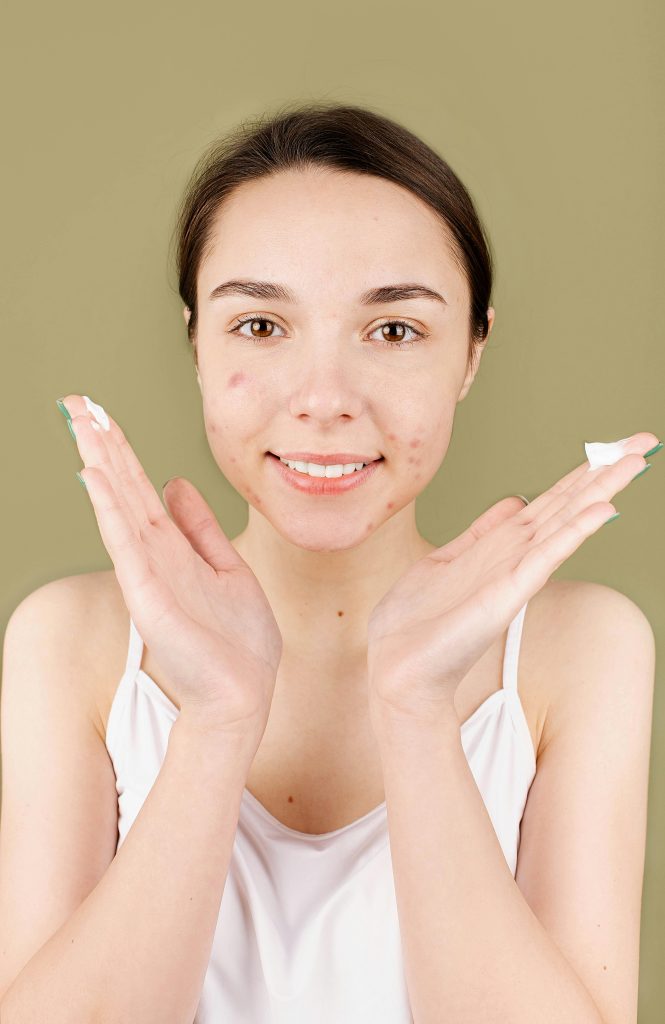Acne on Face and Body: Causes, Prevention, and Treatment.
Miscellaneous
Acne is a common skin condition that affects people of all ages. While it is most commonly associated with the face, it can also appear on the back, chest, shoulders, and other parts of the body. Understanding the causes, prevention methods, and available treatments can help manage and reduce acne effectively.
What Causes Acne?
Acne occurs when hair follicles become clogged with oil, dead skin cells, and bacteria. Several factors contribute to acne, including:
- Excess Sebum Production: The skin produces too much oil, leading to clogged pores.
- Bacteria (Propionibacterium acnes): This bacteria grows in clogged pores, causing inflammation.
- Hormonal Changes: Increased hormone levels during puberty, menstruation, or pregnancy can trigger acne.
- Diet and Lifestyle: High-sugar and processed foods may contribute to acne flare-ups.
- Stress: Increases hormone levels that may worsen acne.
- Friction or Pressure: Tight clothing, hats, or frequently touching the skin can lead to acne breakouts.
Types of Acne
Acne can appear in different forms, such as:
- Whiteheads: Small, closed clogged pores.
- Blackheads: Open clogged pores that turn dark due to oxidation.
- Papules: Small red or pink bumps.
- Pustules: Pimples with pus at the tip.
- Nodules and Cysts: Deep, painful lumps under the skin that can cause scarring.
How to Prevent Acne?
Preventing acne involves maintaining a proper skincare routine and making healthy lifestyle choices:
- Cleanse Regularly: Wash your face and body with a gentle, oil-free cleanser twice a day.
- Exfoliate Weekly: Removes dead skin cells that clog pores.
- Moisturize: Use a non-comedogenic (won’t clog pores) moisturizer.
- Avoid Touching Your Face: Reduces bacteria transfer to the skin.
- Use Oil-Free Products: Choose skincare and makeup labeled “non-comedogenic.”
- Maintain a Healthy Diet: Eat fruits, vegetables, and drink plenty of water.
- Manage Stress: Practice meditation, exercise, or relaxation techniques.
- Change Pillowcases Often: Helps prevent bacteria buildup on the skin.
Treatment Options for Acne
There are several treatments available, depending on the severity of acne:
Over-the-Counter (OTC) Treatments
- Benzoyl Peroxide: Kills acne-causing bacteria.
- Salicylic Acid: Helps unclog pores and reduce inflammation.
- Retinoids: Promote skin cell turnover to prevent clogged pores.
Prescription Treatments
- Topical Antibiotics: Reduce bacteria and inflammation.
- Oral Antibiotics: For moderate to severe acne cases.
- Hormonal Therapy: Birth control pills can help regulate hormone-related acne.
- Isotretinoin (Accutane): A powerful treatment for severe acne but requires medical supervision.
Natural Remedies
- Tea Tree Oil: Has antibacterial properties.
- Aloe Vera: Soothes inflammation.
- Green Tea Extracts: Reduces oil production.
Conclusion
Acne can be frustrating, but with the right care and treatment, it can be managed effectively. Maintaining a proper skincare routine, making healthy lifestyle choices, and consulting a dermatologist for severe cases can help keep your skin clear and healthy.
Would you like any modifications or additional details?